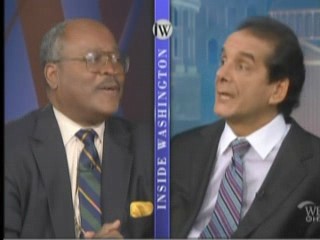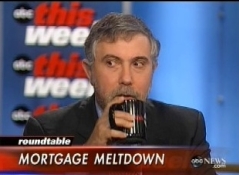http://www.talkingpointsmemo.com/gallery/2010/12/approval-by-numbers-how-obama-c… http://www.talkingpointsmemo.com/images/gallery-presapproval1.jpg Infographic of the Day: Just How Unpopular Is President Obama? The results might surprise you. If you listen to the pundits on cable news — and Fox News especially — then President Barack Obama is reaching theoretically impossible levels of unpopularity, due to his overhaul of health care, the sputtering economy and his bailouts of banks and auto makers. In point of fact, Americans actually like the health care bill, when told what it actually does. And the bailouts of Detroit and Wall Street have had remarkable results. So the issue isn't really about either one. It's the economy, stupid. For proof of that, you need only look at Obama's approval ratings in historical perspective, as Talking Points Memo did. Granted, the man isn't so popular right now — but his unpopularity has some remarkable parallels. In fact, the president whose approval ratings most resemble Obama's is Ronald Reagan. So what was the difference? Reagan, Carter, and Obama all entered office amidst a floundering economy and high unemployment. But with Carter, the economy continued to struggle as he came up for reelection. Not so with Reagan: He had the good fortune to experience a strong bounce-back in job figures right before he came up for reelection. (Whether that was due to Reagan's tax cuts is highly debatable.) It remains to be seen whether the economy will bounce back like that for Obama. Meanwhile, let's take a look at some presidents whose popularity far exceeded Obama's. Take Nixon. Things were great for him — until Watergate, and the great disillusionment with government that followed. But Obama's approval ratings really can't touch Kennedy's, the figure with whom he has often been compared. You could adduce all sorts of reasons why, but it's worth noting that Kennedy was the first true TV President. Never before had America had such a dynamic media figure at the helm, with small kids by his side and a first lady who famously went on national TV to show off her decorating choices. added by: UtopianSky
Name That Celebrity Smile!
 Breaking Sports Video
Breaking Sports Video-
Hot Celebrities
-
Tags
api appid art bennyhollywood black celebrity gossip black celebrity news car celeb news Celebrity Gossip Celebrity News context detected Entertainment extraction Gossip Hollywood hollywood-news hollywood update House instagram invalid life live missing Mtv Music music-news national News news article news update Nsfw online Photos Pictures Sex show stars time TMZ update video Videos white Yahoo




























